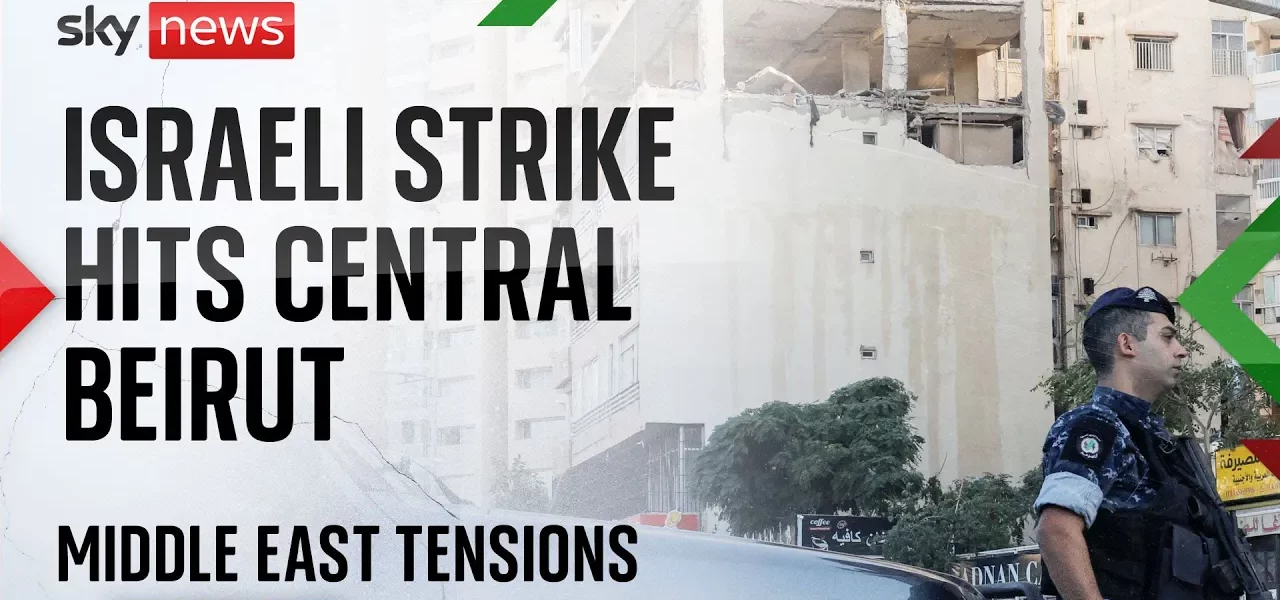Israel Bombs Apartment Block in Central Beirut: A Comprehensive Analysis

This article delves into the recent Israeli airstrike on a residential block in Beirut, providing detailed insights into its implications for the local population and the broader geopolitical landscape. We will explore the historical context, the humanitarian crisis, and the reactions from various stakeholders in the region.
Introduction
In a significant escalation of military action, Israel launched an airstrike on an apartment block in the heart of Beirut, marking the first targeting of this central area since the beginning of the current offensive. This incident raises alarm for many Lebanese, as it signals a shift in the conflict dynamics between Israel and its adversaries, particularly Hezbollah and various Palestinian factions. The ramifications of this strike extend beyond immediate military implications, contributing to an already dire humanitarian situation in Lebanon.
The Context of the Airstrike
The recent airstrike in Beirut is noteworthy for several reasons. Firstly, it is the first time since the onset of this conflict that the Israeli Defense Forces (IDF) have targeted the center of Lebanon’s capital. Historically, during previous escalations, such as the 2006 war, the focus of Israeli strikes has been primarily on southern suburbs controlled by Hezbollah. This shift in targeting strategy prompts questions regarding the motivations behind this latest military action.
Historical Significance
The targeting of central Beirut contrasts sharply with past military engagements. Key points to consider include:
- In the 2006 war, Israeli strikes were largely confined to southern Lebanon.
- The current airstrike is a rare instance of conflict reaching the heart of Beirut.
- Previous airstrikes in the area primarily avoided civilian residential blocks.
The Humanitarian Crisis
The airstrike has exacerbated an existing humanitarian crisis in Lebanon, which is already under severe strain from the ongoing conflict and political instability. The Lebanese caretaker government is struggling to cope with the influx of displaced persons and the impact of military actions on civilian life.
Impact on Civilians
Reports indicate a rapidly growing number of displaced individuals due to the strikes, leading to a humanitarian emergency. Key statistics highlight the severity:
- Approximately one million people have been displaced or affected by military actions.
- The Lebanese government has been conducting emergency meetings to address the crisis.
- Many families are currently living in makeshift conditions, contributing to the overall humanitarian toll.
Current Conditions in Beirut
As the airstrikes continue, the conditions in Beirut are rapidly deteriorating:
- Many individuals are living rough in areas near the transport hubs.
- Basic services are becoming increasingly strained, with limited access to food and shelter.
- The airport is operating with reduced capacity, complicating humanitarian efforts.
Reactions and International Response
The airstrike has drawn various reactions from local, regional, and international stakeholders. The Lebanese government is calling for immediate humanitarian assistance and a ceasefire to prevent further loss of life.
Government Response
The Lebanese government has been vocal about the need for international intervention:
- Calls for humanitarian aid from the international community.
- Urgent requests for diplomatic efforts to establish a ceasefire.
International Reactions
Responses from other nations and organizations include:
- Condemnation of the airstrike from various human rights organizations.
- Calls for Israel to adhere to international law regarding civilian protections.
- Concerns about the potential escalation of conflict in the region.
Conclusion
The recent airstrike by Israel on an apartment block in central Beirut marks a pivotal moment in the ongoing conflict, highlighting the shifting dynamics of military strategy and the severe humanitarian crisis unfolding in Lebanon. As the situation develops, it is crucial for the international community to engage and provide the necessary support to alleviate the suffering of millions affected by this conflict. We urge readers to stay informed and advocate for humanitarian efforts that prioritize civilian safety and welfare.
For further insights into the ongoing situation in the Middle East and its implications, please visit our related articles on the humanitarian crisis and international relations in the region.
“`




